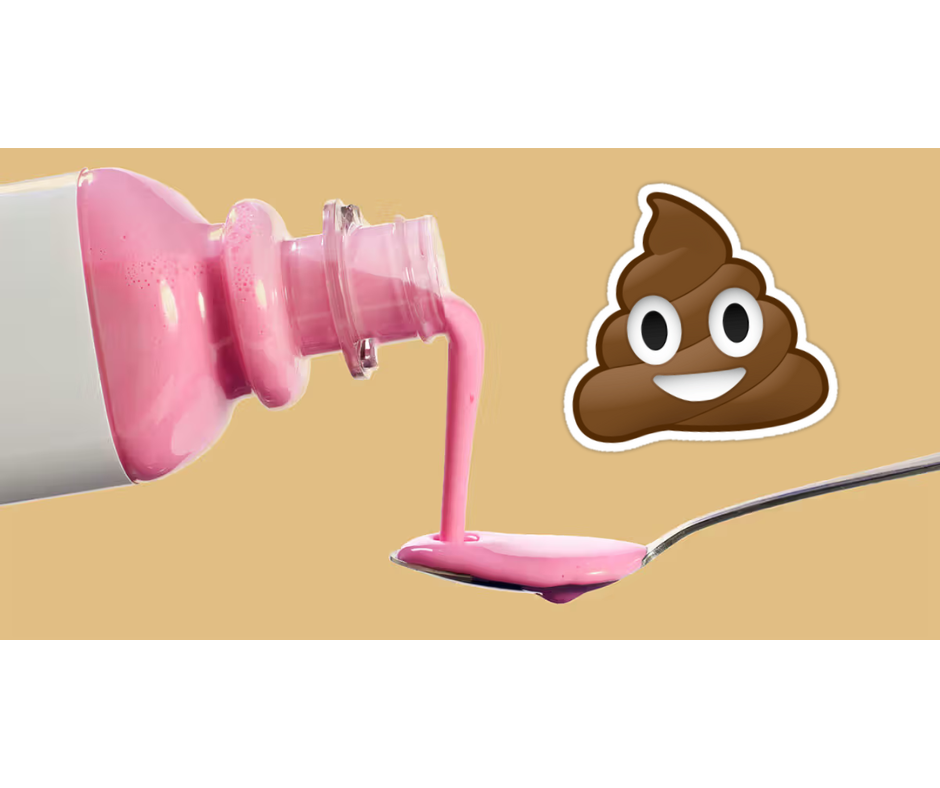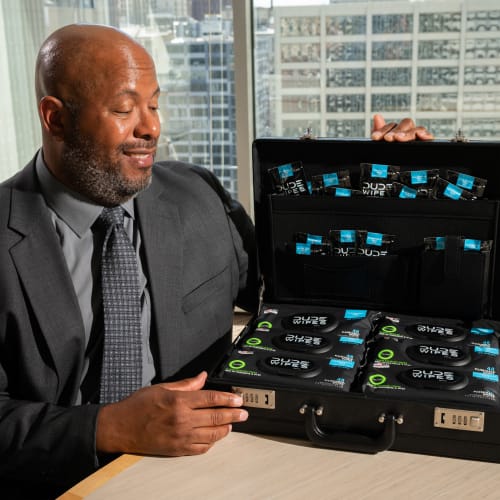Your poop can tell you a surprising amount about your health, like when you need to eat more fiber and stop devouring spicy food. But sometimes, your poop can indicate more serious issues going on inside your gut—and one thing to keep an eye on is narrow stools.
Don’t freak out—an occasional narrow stool isn’t a death sentence. But if you’re consistently pushing out pencil-thin poops, it’s definitely worth giving your gastroenterologist a buzz.
In this article, we’ll break down what actually counts as a “narrow” stool, several common causes, and when it’s time to get off your phone and into a doctor’s office.
What Size Is Considered a Narrow Stool?
There isn’t an official medical definition for a narrow stool. However, a standard turd is typically 1-2 inches wide. So if your poop is less than one inch wide, it might be considered narrow.
Some healthcare professionals refer to “pencil thin” stools, meaning your poop is about the width of a pencil—about a quarter-inch. Pencil thin stools may be a sign of a bowel obstruction, according to Mayo Clinic.
Narrow stools can also look stringy or ribbon-like. No matter what you call it, a narrow stool is less than one inch wide.
9 Causes of Causes Narrow Stools
From constipation to colon problems, here are eight potential causes of thin stools.
1. Constipation
Constipation doesn’t just make it harder to poop—it can make your poop narrow when it finally passes through your hole. Common causes of constipation include a lack of dietary fiber and dehydration.
If you’re constipated, you’ll likely have other symptoms such as:
- Having fewer than three bowel movements per week
- Hard, dry stools
- Bloating and cramping
- Straining to poop
- Bad gas
2. Hemorrhoids
Hemorrhoids are painful, inflamed veins in your butt. If they swell up enough, they can squeeze your poop into a narrow shape as it snakes its way out of your body.
Hemorrhoids usually go away on their own, but you can alleviate the pain with topical hemorrhoid creams. Pro tip: don’t flare up your hemorrhoids with dry toilet paper. Instead, wipe with DUDE Wipes Medicated, which are infused with soothing witch hazel.
3. Irritable Bowel Syndrome (IBS)
IBS flare-ups can make your poop smaller or narrower, especially if you have constipation-predominant IBS. These flare-ups can be caused by stress, carbonated drinks, caffeine, alcohol, or processed foods.
Narrow stools caused by IBS are typically accompanied by constipation, farting, bloating, and painful pooping.
4. Diverticulitis
Diverticulitis happens when inflamed or infected pockets form in the lining of your large intestine (colon). Diverticulitis can cause narrow stools or pebble poops since the condition distorts the shape of your colon.
Other symptoms of diverticulitis include rectal bleeding, foul-smelling stool, diarrhea, and constipation.
5. Fecal Impaction
Fecal impaction is like constipation on steroids. It happens when a lump of dry poop gets lodged in your rectum. This creates a blockage around your butthole, where only narrow stool can pass through.
Fecal impaction usually requires attention from a healthcare provider who manually dislodges the poop—pleasant, right? Other times, suppositories or enemas are used to break up the lump of stool.
6. Medications
Certain medications can make your digestive system move in slow motion. This causes constipation and, as an effect, narrow stools. Here are a few common culprits:
- Opioid pain medications like hydrocodone and morphine
- Antidiarrheal medications
- Anticholinergics, such as oxybutynin and scopolamine
7. Anal Stenosis
Anal stenosis is a rare condition that causes your anal canal to become narrow from scarring. This can be caused by surgical hemorrhoid removal, chronic diarrhea, long-term laxative use, trauma, radiotherapy, or tuberculosis.
In addition to narrow stools, anal stenosis has symptoms including painful bowel movements, constipation, and bloody stools.
8. Colorectal Cancer
Narrow stools may be a symptom of colon cancer or anal cancer. Cancerous growths in the lower colon can constrict the passage, making stools thin or smaller than usual.
Narrow stools are often associated with late-stage colorectal cancer when the tumor has grown and started affecting the structure and function of the intestines.
It’s important to note that narrow stools aren’t the only evidence of colorectal cancer. Other symptoms of colorectal cancer include:
- Chronic fatigue
- Bloody stool
- Black or tarry stool
- Changes in your pooping patterns, like chronic diarrhea or constipation
- Unexplained weight loss
- A “full” sensation in your bowels
- Anal discharge
- Anal itching
When to Tell Your Doctor About Narrow Stools
The occasional narrow stool is nothing to panic about. Chances are you’re dealing with a case of constipation, which is caused by a lack of fiber in your diet, dehydration, medications, or not getting enough exercise.
However, if your stools are narrow for more than a week, it’s worth getting in touch with your healthcare provider, especially if you notice pencil-thin stools. Other red flags that warrant a chat with your doc include bloody poop, severe abdominal pain, and unintentional weight loss.
Regardless of the shape and size of your stool, any DUDE over the age of 40 should get a colonoscopy on the calendar. Colorectal cancer is the third-leading cause of cancer death among men, but the good news is that it’s treatable if you catch it early. A few minutes of awkwardness is worth your life, so stop procrastinating.
How to Get Your Stool Back to Normal
There isn’t a one-size-fits-all way to treat narrow stools, since it depends on the exact cause. For example, if constipation is to blame, you can increase your fiber intake or try a laxative or stool softener to get things moving down there.
If IBS is causing your narrow stools, try to avoid your “trigger foods” that cause flare-ups—particularly ones that cause gas and bloating.
When it comes to medical issues like diverticulitis, anal stenosis, and colorectal cancer, those need to be managed by a doctor. You may need a rectal exam, ultrasounds, endoscopy, or blood test to narrow down the root cause of your narrow stools—and get a game plan for treatment.
We covered a lot of crap in this article. But rest assured that no matter the shape or size of your stool, DUDE Wipes can handle whatever mess you leave behind.









Leave a comment
This site is protected by reCAPTCHA and the Google Privacy Policy and Terms of Service apply.